The medieval castle of
Loches is unique in that whereas most Loire Valley Chateaux are built on the sites of former fortresses with little
remaining of the original fortress, here you have a citadel town that has
both the remains of the fortress, built again by our old friend Foulques Nerra Count
of Anjou (busy man!) in the 11th century and its 14th and 16th century
Royal Lodgings both well enough preserved to give a good idea as to how
the site was used through the centuries.
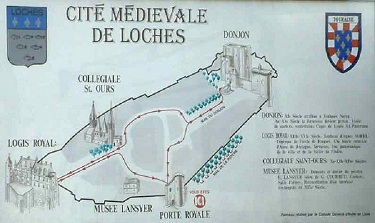
Visiting the Chateau at Loches combined with the
keep must be one of the best value 'tickets' in the
Loire Valley at only € 8.50 (children under 12
free). Add to this the fact that you can visit the
free 'house museum' of the painter Emmanuel Lansyer and
the church of St. Oars on the way and you have an
excellent value-for-money day out
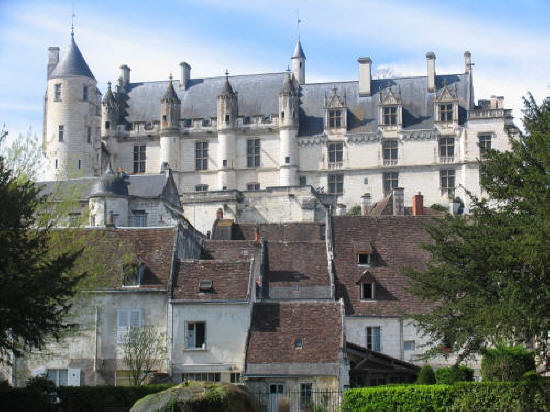
The
chateau or 'Royal lodgings' sit really well into the
landscape of this medieval town - it was after all
where it all began. There has been a fortification
on this site since the Romans built the first one in
the third century. Situated to the north of the
citadel, the least exposed to attacks, it was used
as the residence of the King and his court when they
were passing through the town or staying clear of
their enemies in and around Paris. It and the rest
of the fortified complex can be accessed via the
'Porte Royale' gate on the western ramparts.
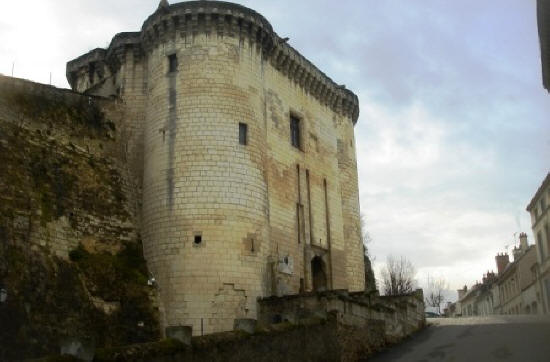
If you make your way through 'Port Royale' you turn
left to take you to the 'Royal Lodgings' (Chateau).
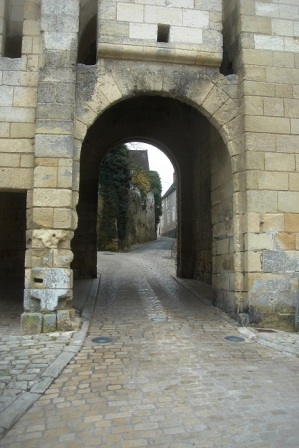
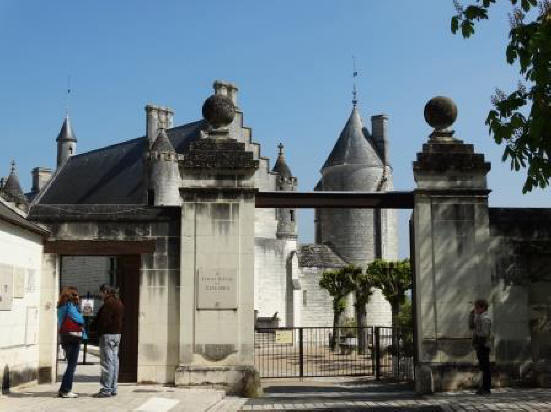
Entrance
to the 'Royal lodgings'
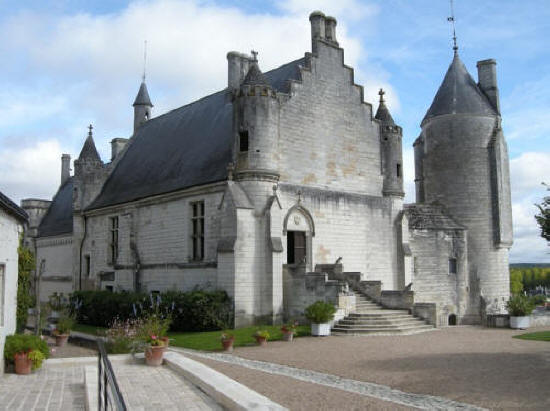
Two buildings dating
from different periods sit side by side, the
south-east part was built in the 16th century onto
the existing 14th century building. Its built-in
turrets and its machicolations are reminiscent of
military architecture.
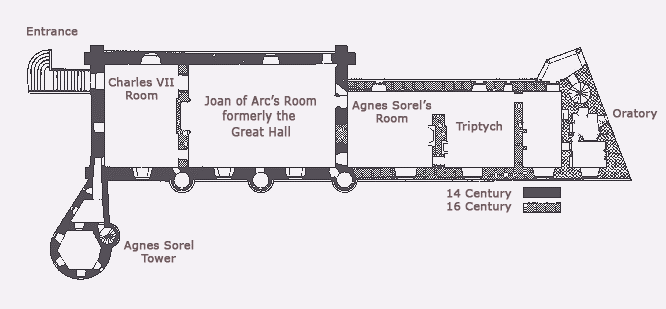
Of what you see
today, only the watchtower, or 'Agnes Sorel
tower', (right in the picture) is earlier than 14th
century. It was annexed to the 14th century great
hall and 'Royal Chamber'. Much as we love Loches
and its castles we can recall our sense of
disappointment on catching our first glimpse of the
'Royal Lodgings' from 'uptop' after admiring the
building from the lower town and gardens below. You
just expect there to be more to it -all those
windows but no...there isn't, as the floor-plan
above shows
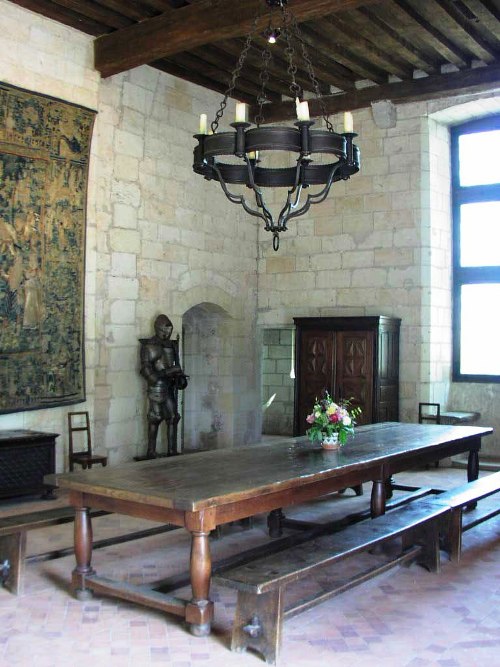
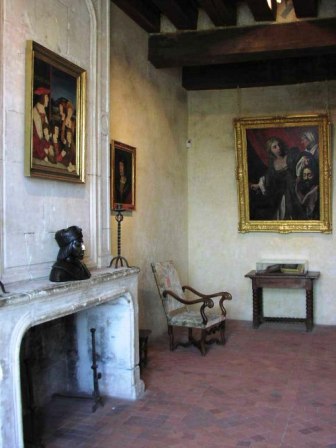
Information on who actually built these more
comfortable lodgings is scant but it was probably during the reign
of Charles VI that the first stage was completed allowing them to
move out of the feudal keep which must have been pretty stark. Charles VIII and Louis XII were probably responsible for the
second phase.
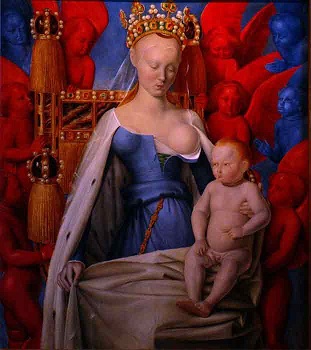
The castle would become a favourite
residence of Charles VII who gave it to his
mistress, Agnes Sorel as her residence. She
is recognised as the first official royal
mistress of a king (there would have been
many before her). He was forty years old
when he met Agnes in 1443, she was
twenty-four. He fell quickly in love with
this young woman who was cultivated,
intelligent and so very alluring. She died
in childbirth after she followed Charles on
a campaign to Jumièges in 1450. The cause of
death was originally thought to
be dysentery, although scientists have since
concluded that Agnès died from mercury
poisoning, possibly the victim of murder,
although mercury was also used to treat such
things as worms. Her tomb is in the nearby
church of
St.Oars.
It would be converted for use as a
state prison by his son, Louis XI who had lived
there as a child but preferred the chateau at
Amboise as
a residence -- spoilt for choice really.
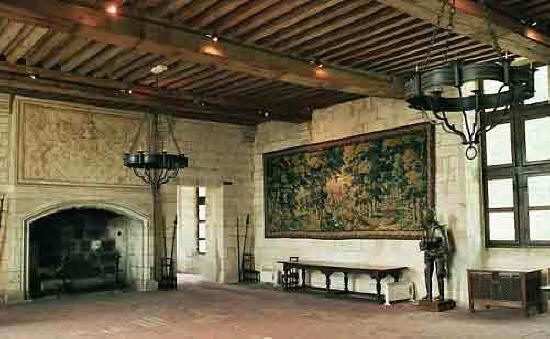
It was in the
great hall (right), in June 1429, that Joan of Arc, on her way back
from relieving the English siege at Orleans, came to find Charles
VII and convinced him to go to Reims in order to be crowned.
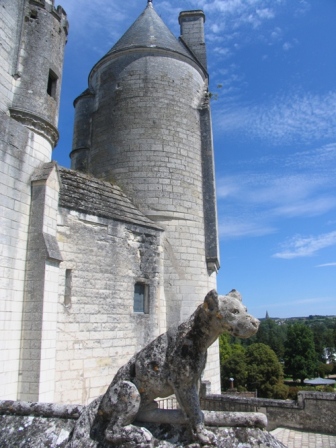
The dogs sitting on the walls of the entrance stairs
recall the favourite pastime of its royal residents
who would hunt in their well-stocked hunting estates
that used to surround the chateau.
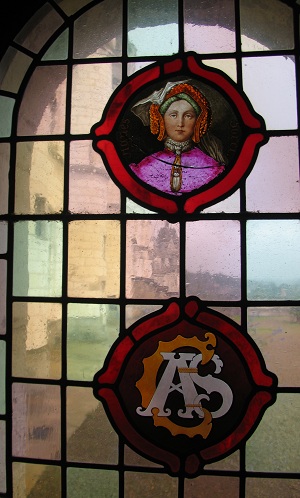
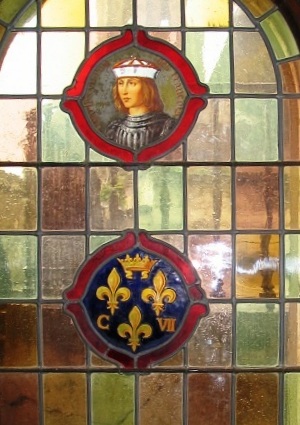
These windows can be found in the 'Agnes Sorrel
tower' depicting her and husband Charles VII
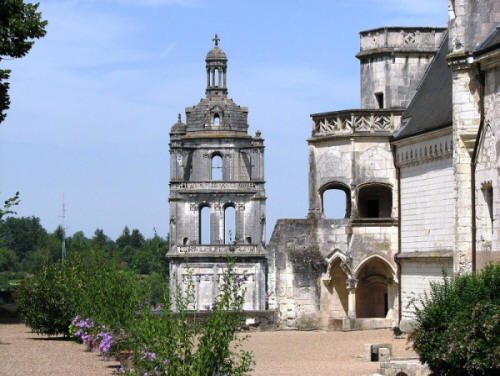
The entrance to the oratory of Anne of Brittany, on
the right of the picture above, is actually part of
the citadel wall and was the final piece of work
added to the north end of the castle. The oratory or
'Chapel of Anne of Britanny' (she was wife to both
Charles VIII and Louis XII) was finished in a
flamboyant gothic style.
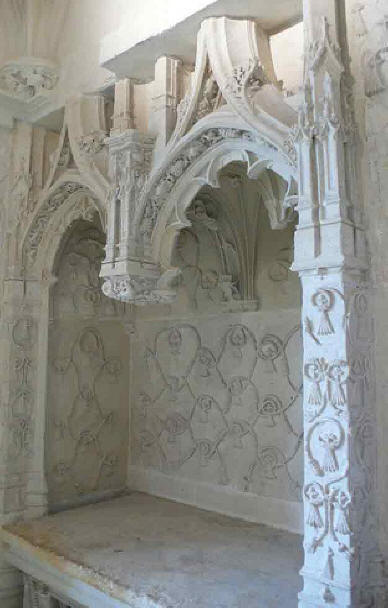
The tower you see in the background is 'La Tour
Saint-Antoine' which served as the town belfry is
not part of the chateau but sits in the town
below.. It rises to 52 meters. Built between 1529
and 1575, it is apparently the only bell tower of
Renaissance design in Touraine.
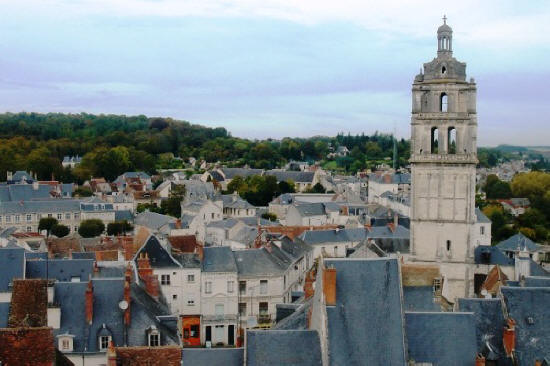
A good view of this and the rooftops of the town can
be had from the terrace.
Schedules and Prices
- Every day, from 09:30 to 17:00
Admission prices :
- Full price : 9.00 €
- Reduced price : 7.00 €
Ticket price covers
entry to both Chateau and the Donjon
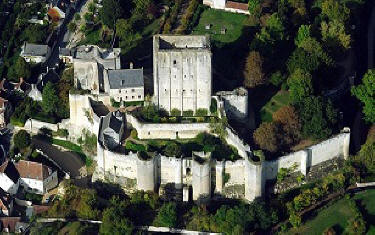
Loches Donjon
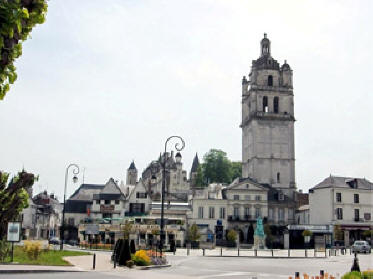
Back to Loches